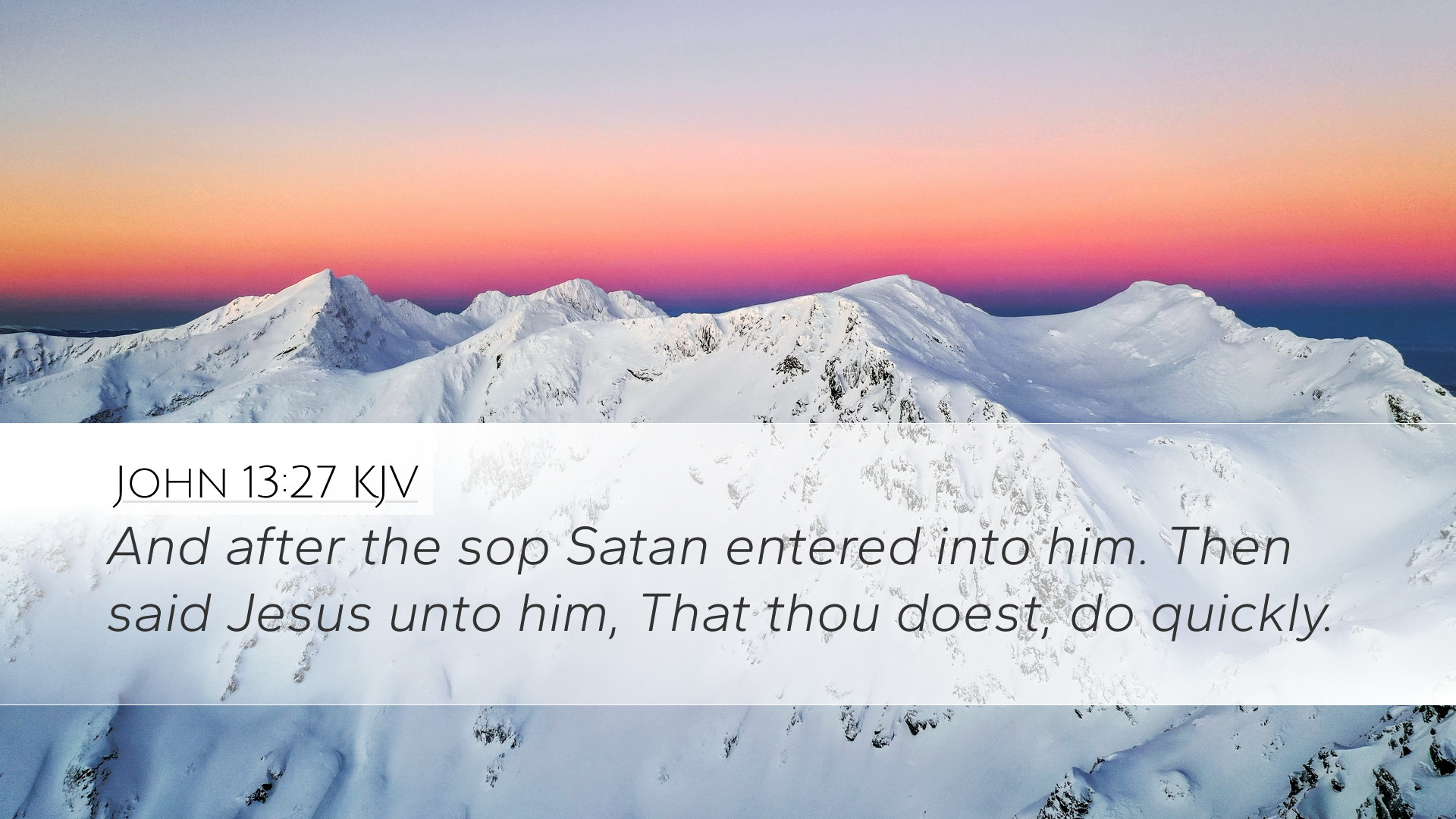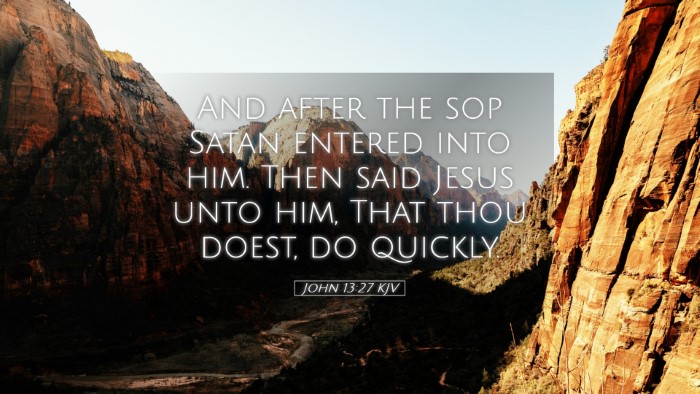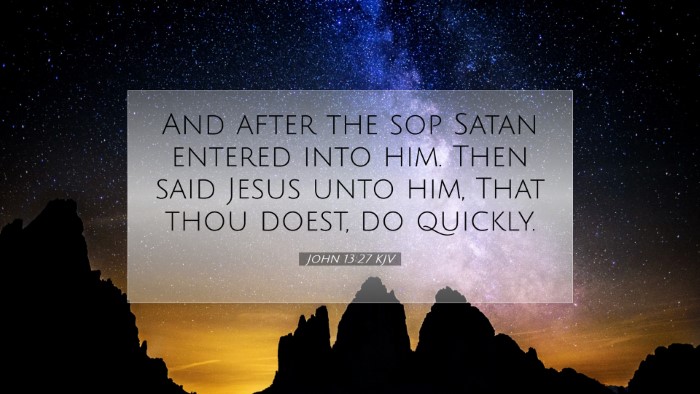Commentary on John 13:27
John 13:27 records a pivotal moment during the Last Supper, where Jesus identifies Judas Iscariot as his betrayer. The verse states: "And after the sop, Satan entered into him. Then said Jesus unto him, That thou doest, do quickly." This brief yet profound moment highlights themes of betrayal, the sovereignty of divine plan, and the dark reality of human choices.
Context of John 13
In the broader context of John 13, we find the Last Supper, where Jesus washes his disciples' feet, demonstrating servanthood and humility. This act sets the stage for the revelation of Judas’s treachery, which is cloaked in the intimacy of the meal. The setting is critical for understanding the depth of Judas' betrayal—a betrayal by someone who was close to Jesus.
Understanding the Betrayal
Matthew Henry in his Commentary on the Whole Bible emphasizes the gravity of Judas's decision. He remarks on the sorrowful nature of betrayal by one of the Twelve—a chosen disciple who had witnessed Jesus's miracles and teachings firsthand. Henry notes, "It is a great sin to betray those whom we profess to love and serve."
Albert Barnes, in his Notes on the New Testament, highlights the chilling phrase "Satan entered into him." This suggests an external spiritual influence impacting Judas's decision. Barnes states, "The influence of Satan in this case was complete; he possessed Judas and filled him with such a malevolent intent." This raises important theological implications regarding the nature of evil and human culpability.
Adam Clarke, in his Clarke's Commentary, goes further by discussing the mystery surrounding Judas's actions. Clarke proposes that while Judas had free will, his choices were simultaneously influenced by the malignant forces at play. He notes, "Judas's sin was preordained in the divine economy, illustrating a profound paradox of divine foreknowledge and human agency."
The Role of Satan
The reference to Satan entering Judas serves as a stark reminder of the ongoing spiritual warfare present in the life of believers. Both Barnes and Clarke stress that while Judas made the decision to betray Christ, he did so under the influence of forceful evil. The portrayal of Satan's role invites serious reflection on the nature of temptation and sin in the lives of individuals.
- Matthew Henry: Points out that this event reminds believers to remain vigilant and to guard their hearts against similar influences.
- Albert Barnes: Suggests that all believers must be wary of the subtle ways temptations can entice even the most devoted.
- Adam Clarke: Emphasizes prayer and reliance on God's strength to resist such influences.
The Timing of the Betrayal
The phrase "That thou doest, do quickly" spoken by Jesus demonstrates the urgency with which events are unfolding. Clarke indicates that this command from Jesus signifies a point of no return for Judas; he had plunged too deep into his treachery to turn back now.
Henry underscores that Jesus, aware of the fulfillment of prophecy, sees this moment as part of God's redemptive plan. The betrayer’s actions, though grave, align with divine purpose. This interplay between divine sovereignty and human sin presents a theological tension that is rich for exploration.
Theological Implications
John 13:27 raises critical questions for theologians regarding free will, predestination, and the nature of evil. The commentaries by Henry, Barnes, and Clarke collectively suggest that while God is sovereign, humanity still bears responsibility for their actions. This duality invites rigorous theological reflection on how these concepts interact in Christian thought.
Furthermore, Judas's fate serves as a cautionary tale for believers. The potential for betrayal exists in every follower of Christ, making vigilance essential. Henry asserts, "Let the Lord's supper be received with a heart of fidelity and love, lest we fall into the same doom as Judas."
Conclusion
In summary, John 13:27 offers profound reflections on betrayal, the reality of spiritual warfare, and the intersection of divine sovereignty and human agency. The insights from public domain commentaries provide a layered understanding of this critical moment in Jesus's last days. Pastors, students, and theologians can draw rich applications from the lessons of this scripture, reminding us of the seriousness of our choices and the need for constant vigilance against the temptations that threaten our fidelity to Christ.


